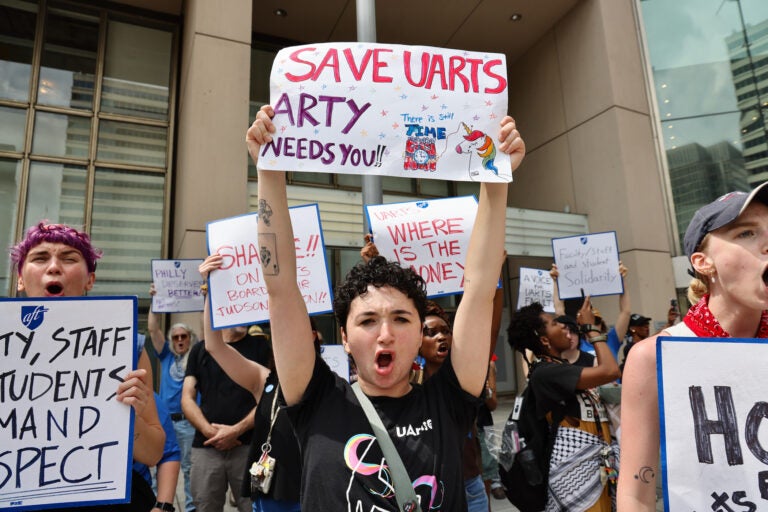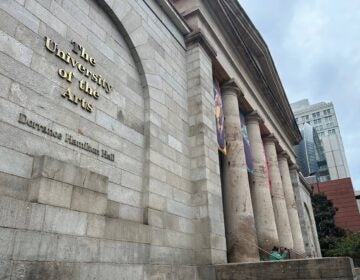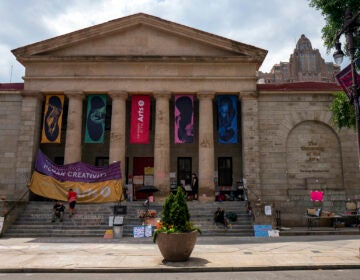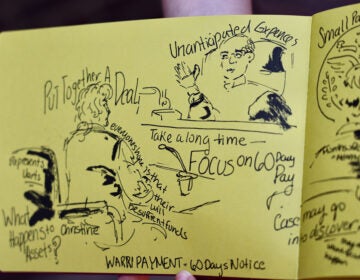‘Displaced’ and ‘abandoned’: Former UArts students file class-action lawsuit
Following UArts faculty’s lawsuit last week, students claim the now-closed school committed fraud and breach of contract.

Students join faculty and staff of the University of the Arts at a rally demanding transparency and accountability from the school's board of directors. UArts announced last Friday that it would shut down permanently June 7, citing low enrollment and an undisclosed fiscal crisis. (Emma Lee/WHYY)
UArts closure: What you need to know
- Philadelphia’s University of the Arts recently announced its sudden closure
- The abrupt closure has sparked widespread criticism from students, faculty and staff, who have pushed for answers from the university
- UArts president Kerry Walk resigned shortly before the university’s last day
- The future remains unclear for UArts students, some of whom are watching the school collapse from abroad
- Here’s what might happen to the school’s $61 million endowment and historic buildings
Former students of the University of the Arts in Philadelphia have filed a class-action lawsuit against the school in the wake of its closure.
The law firm Sauder Schelkopf, based in Berwyn, Pennsylvania, filed the lawsuit with the United States District Court of Eastern Pennsylvania. It names two students, Katherine Anderson, who relocated to Philadelphia from Texas to attend UArts, and Ian Callaghan-Kenna of Pennsylvania, both rising sophomores who had enrolled for fall 2024.
The suit indicates that upon the discovery phase of the proceeding, there will be many more plaintiffs, perhaps thousands.
“Plaintiffs and other similarly situated students have been left displaced, stranded, confused, and abandoned by the University,” the suit reads. “Instead of offering clear guidance or any effective plan for navigating the sudden and unexpected transition, the University has shirked its responsibilities entirely.”
The suit makes six counts against UArts: breach of contract, implied breach of contract, unjust enrichment, common fraud, and violations of state unfair trade practices laws in both Pennsylvania and Texas. It seeks monetary compensation to recover amounts paid to UArts.
“The abrupt closure of UArts has caused considerable financial distress to its now former students who relied on its continuing operation and accreditation when they enrolled, obtained loans and, in many instances, relocated to Philadelphia to attend,” said attorney Joe Sauder. “We look forward to pursing this litigation on their behalf.”

Get daily updates from WHYY News!
WHYY is your source for fact-based, in-depth journalism and information. As a nonprofit organization, we rely on financial support from readers like you. Please give today.






